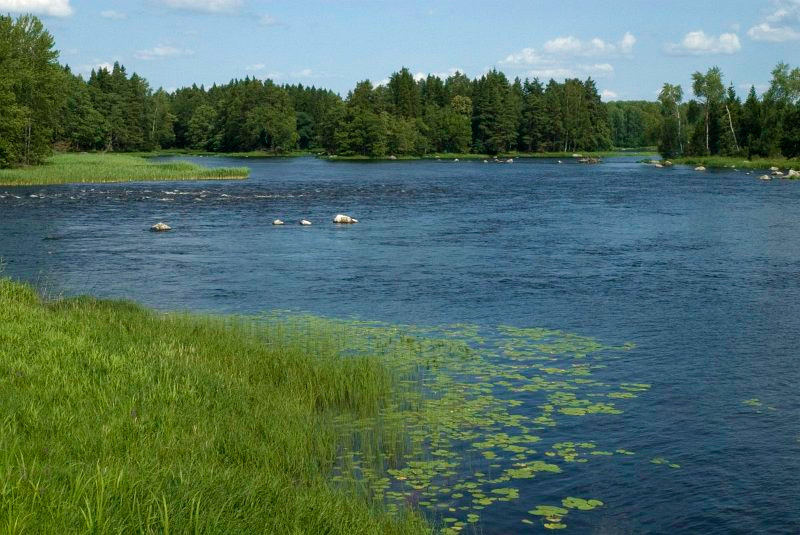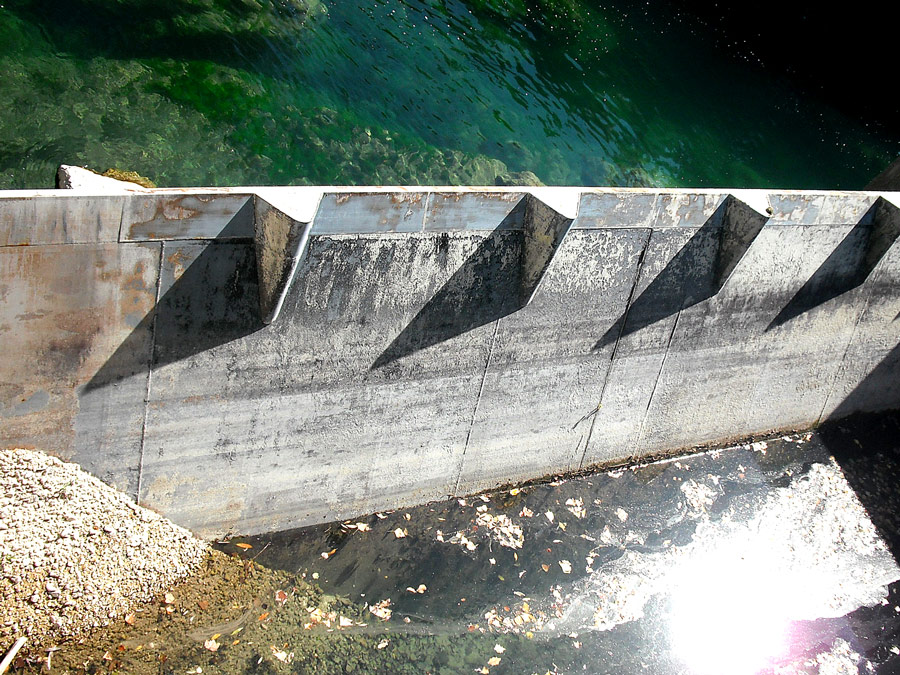Focused on the effective integration of environmental dimensions in individual and collective decisions, ACTeon activity addresses the main environmental themes.
During the last decades, the balance between agricultural production systems and natural resources has evolved significantly. Indeed, the agricultural sector has faced many changes caused by a combination of issues related to productivity, restructuration of agricultural commodity chains and agricultural policies, as well as new societal demands. These evolutions have led to strong pressures, which call for a new coordination between agricultural development and environmental protection.
In order to support the building of new policies and strategies, ACTeon develops objective and detailed analysis of the balances between agricultural sectors (farms and upstream/downstream commodity chains) and natural resources. The conclusions enable ACTeon to provide guidance on the development of production systems which are both technically and economically sustainable and balanced with local resources. To do so, ACTeon deals with a wide range of tools and working methods:
- Agro-environmental policies assessment at local, national and European scales (studies on agri-environmental measures, territorial agencies policies…);
- Agricultural socio-economic diagnosis: commodity chain and economic opportunities, drivers of changes in agricultural practices (diagnosis for “la plaine du Saulce”, study on local food system for the natural regional park Haut-Jura…);
- Foresight analysis of agricultural production systems and upstream/downstream commodity chains and of their interfaces with natural resources (“Durance 2050”foresight studies, “Setting up new farmers” study in the Bourgogne region…);
- Development of master plans on agricultural systems balanced with natural resources (Loire, Aquitaine, Provence-Alpes-Côte d’Azur irrigation master plans…)
- Sizing of actions to reduce the environmental impacts of livestock and crop production practices (National action plan to preserve the common hamster, Reduction of nitrate and pesticides flows in water resources);
- Agro-economic modeling of environmental policies’ impacts on agricultural economy and territorial development (“Cap and Trade” project);
- Analysis of interactions between stakeholders and governance within the agriculture-environment system.
To achieve these missions, ACTeon relies on some key principles:
- An active participation of agricultural stakeholders in building the working hypothesis and assimilating the results;
- Overcoming the barriers between technical, economic and sociological expertise within project teams;
- Research development led in partnership with European or French research institutes, mobilizing the recent advances related to the agriculture-environment nexus.
 pressures on ecosystems and on biodiversity. A major issue remains to ensure an effective integration of natural heritage and ecosystem services in the decision-making process from local to worldwide scales.
pressures on ecosystems and on biodiversity. A major issue remains to ensure an effective integration of natural heritage and ecosystem services in the decision-making process from local to worldwide scales.

Projects related to water, are a core field at ACTeon since its creation in 2003. An important part of the company’s activities are related to water issues with projects implemented in France, the European Union and outside Europe (namely in the Caucasus and the Mediterranean basin), some examples are:
The implementation of the Water Framework Directive (WFD) in France, in other European countries or at regional European scale, particularly regarding socio-economic and governance dimensions of the WFD:
- Support to the Common Implementation Strategy of the WFD at EU level
- Socio-economic analysis of water uses for the Rhone-Mediterranean French Basin and for Corsica (2013)
- Cost-Benefit analysis promoting arguments for updating the list of HMWB on the Rhone-Mediterranean and Corsican basins (2014)
The development of water management strategies at the scale of watersheds through participatory processes involving stakeholders and local decision makers:
- Development of the management strategies for the Houiller, l’Argoat-Trégor-Goëlo, Bièvre and Arve French watersheds.
- Evaluation and diagnosis of the management strategies for the Siagne and Molasse Miocene French watersheds.
The development and evaluation of EU policies in the areas of droughts and quantitative management of water resources:
- Water Gap study for DG Environment
- EU Water Blue Print (2012)
Ex ante and Ex post evaluation of economic instruments applied in the field of water:
- Support to the European Environmental Agency to assess the implementation of water pricing policies with regards to obligations imposed by the WFD (cost recovery and incentive pricing).
- European research project Economic Policy Instrument-Water : evaluation of the role and potential impacts of a wide range of economic instruments for the management of aquatic environments.
The development of prospective approaches in the water sector:
- “Prospective Garonne 2050” centered on the quantitative management of water in the Garonne basin up to 2050
- Forecast analysis of the drinking, industrial and agricultural water demands and modeling of water balance in 2050 for the French Durance (R2D2) Basin in partnership with IRSTEA.
Analysis of the role of the European water policy in response to the economic and financial crisis
ACTeon also develops and runs training modules dedicated to integrated water resources management and water economics. These modules are intended either for professionals (training module for the “CETE Rhone-Alpes” agents) or for students (“Masters ISIE” in Strasbourg University).
To accompany the territories in their energy transition, ACTeon intervenes at different levels:
- definition of action plans and identification of key measures to achieve the objectives set by a policy (territorialisation of “SRCAE Alsace”, for example);
- ex-post evaluation of programs and energy-climate public policy (evaluation of 5 volunteer PCET in Alsace; analysis of 26 regional climate, air and energy plans on behalf of ADEME);
- economic (including in terms of employment) impact assessment of the implementation of a climate and energy strategy in a territory (work done on behalf of the PACA region);
- identification of economic, financial and legal instruments of the energy transition (for the PACA region in particular);
- training modules (Master 2 in Environmental management and sustainable development of the University of Strasbourg).
On these issues, ACTeon works with local and regional authorities (PNR, Pays, region), with ministries and associated agencies (MEDDE, ADEME), as well as with European partners (through research projects for DG Environment and Research).
ACTeon is involved in activities concerning adaptation to climate change issues. In particular, ACTeon accompanies territorial stakeholders through their reflexion on resilience and in the definition of adaptation strategies at different scales. This concerns research projects, exploratory exercises, as well as more “operational” studies:
- Development of prospective visions of climate change impacts on water resources and aquatic environments (Projet R²D² 2050 on the Durance river basin, within the Management and Climate Change Impact Program of the MEDDE; project Garonne 2050 on the Garonne river basin, on behalf of the Adour-Garonne Water Agency; at a national scale, on behalf of the water and biodiversity service of the MEDDE);
- Review and analysis of adaptation initiatives (project on adaptation to climate change in the Pyrenees, on behalf of the Midi-Pyrénées region – Pyrenees Working Community) and ex-ante evaluation methods applied to adaptation strategies (on behalf of ADEME);
- Development and integration of adaptation components into public policies on climate, air and energy (PCET Grand Chalon, SRCAE Champagne-Ardenne, territorialisation of the SRCAE Alsace);
- Exploitation and dissemination of interregional studies on adaptation to climate change (on behalf of CGET);
- Analysis of opportunities for mainstreaming adaptation in coastal public policies and evaluation of stakeholders’ perception of change and its impacts on decision-making ( ADAPT-MED project financed by the European Union under the Circle-2 research program, carried by the MEDDE in France and in partnership with Portugal and Greece).
On these issues, ACTeon works with local and regional authorities (PNR, Pays, region), ministries and associated agencies (MEDDE, ADEME), as well as European partners (through research projects for DG Environment and Research).
Marine and coastal areas are of high social and economic importance. Preservation of these areas has only recently been tackled by public policies. At the European level, the Recommendation on Integrated Coastal Zone Management of 2002 and the Marine Strategy Framework Directive (MSFD) adopted in 2008, address the question of preserving marine and coastal ecosystems. For the MSFD implementation, Member States are asked to assess issues and needs for preserving marine areas and to define management plans for the sustainable development of marine areas. The Maritime Spatial Planning (MSP) Directive, adopted in July 2014, ensures the implementation of a “Blue Growth”, a long-term strategy for ensuring a sustainable growth of EU maritime sectors.
ACTeon is nowadays strongly involved in projects related to coastal zone and marine resource management – for example:
- Foresight exercise assessing economic activities in the Mediterranean region and pressures exerted on the Mediterranean Sea;
- Support to DG Environment in its work on Integrated Coastal Zone Management and Maritime Spatial Planning;
- Support for the implementation of the MSFD in France and in the OSPAR region, especially regarding socio-economic issues;
- Study for improving water governance on the Mont Saint-Michel Bay;
- Socio-economic analysis of fisheries and shellfish farming sectors in several studies (water agencies studies, Water Development and Management Plan in coastal areas);
- Research project Dessine-moi…. un système Mer-Terre ! (Draw me … a land-sea system, Liteau program) which builds upon a foresight exercise and the analysis of stakeholders representations;
- Evaluation of the IVth axis of the European Fisheries Fund in France
- Evaluation of marine and coastal ecosystem services provided by the Sargasso Sea, in collaboration with the Duke University

